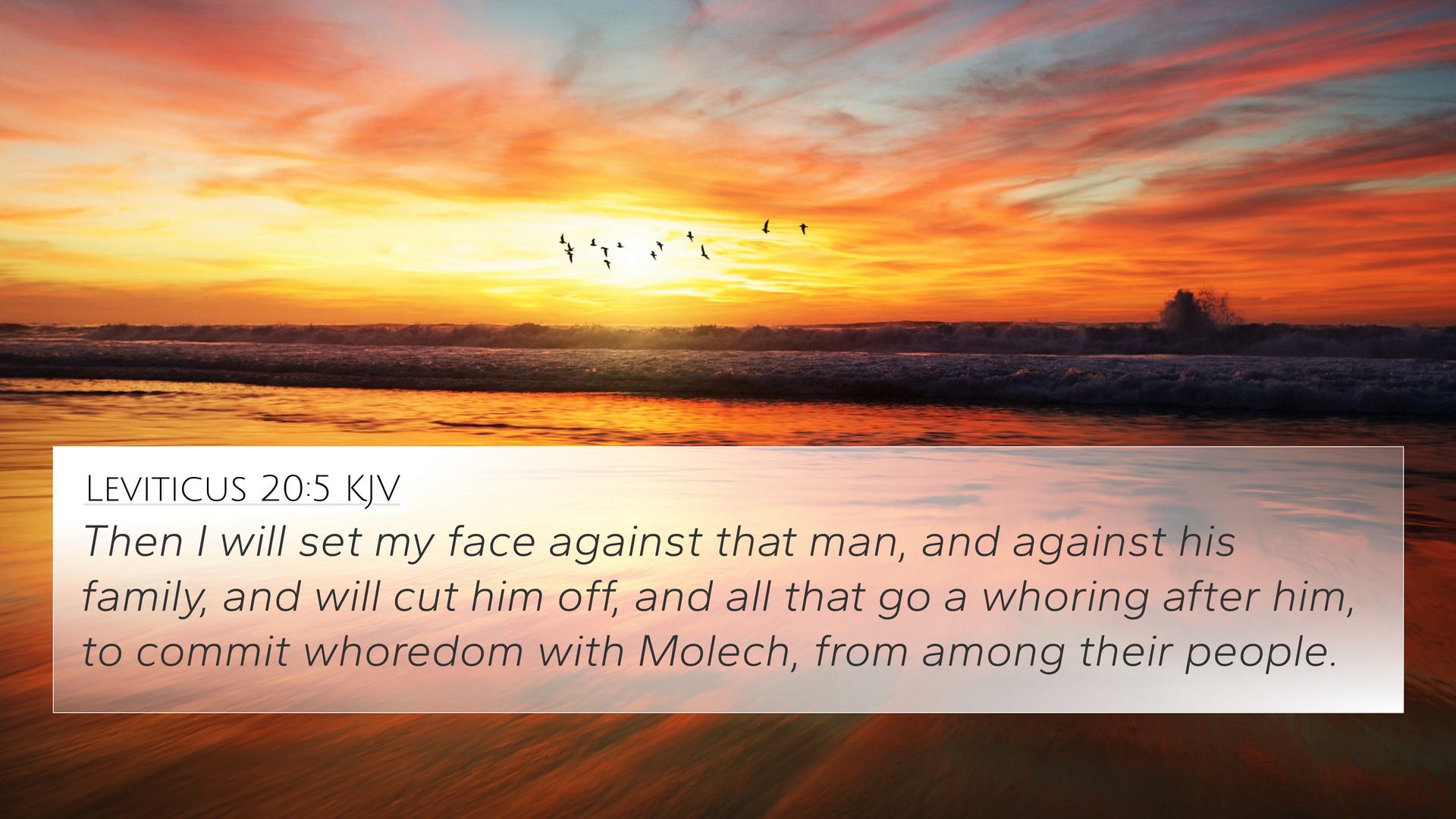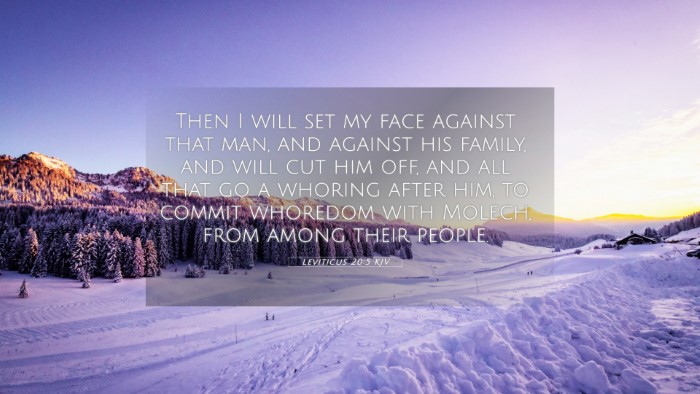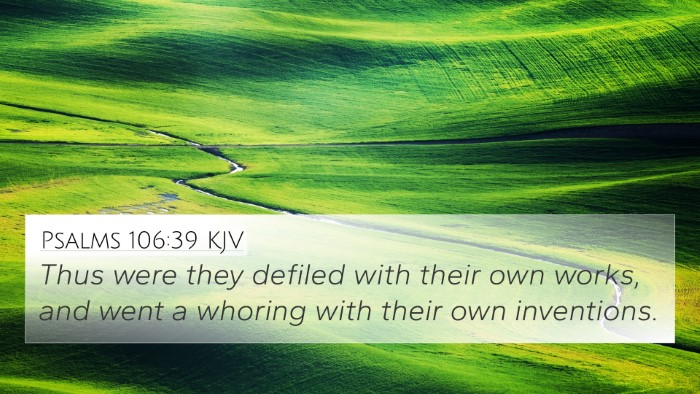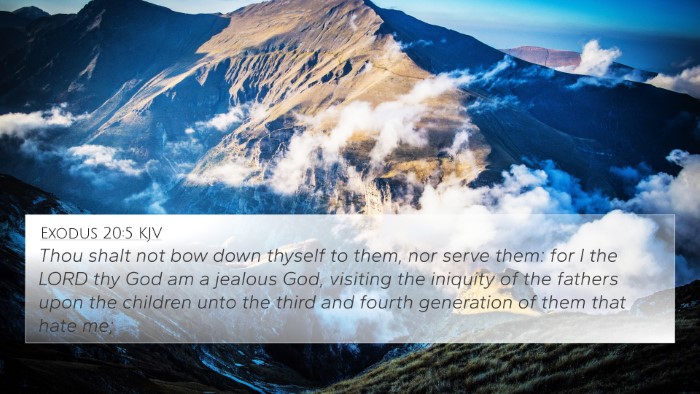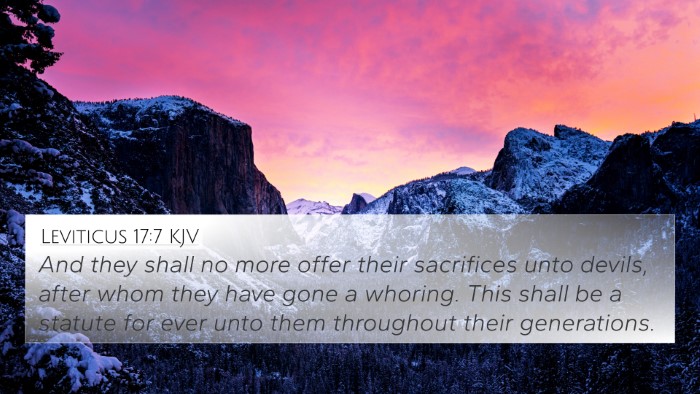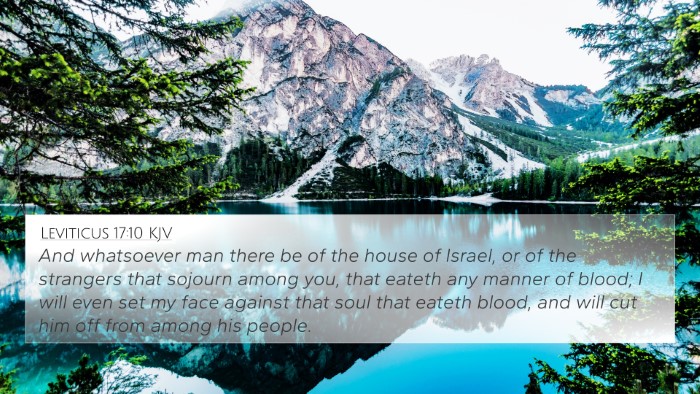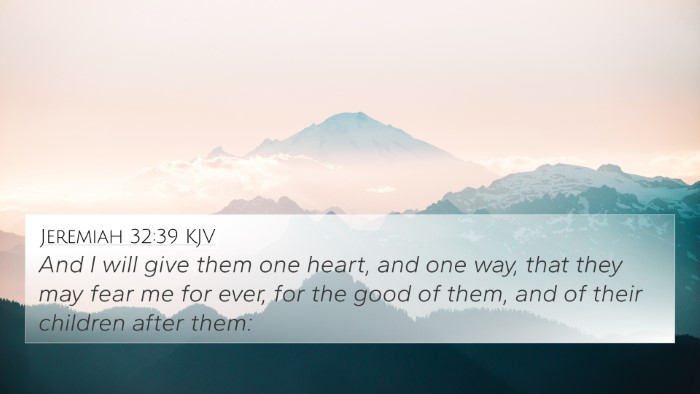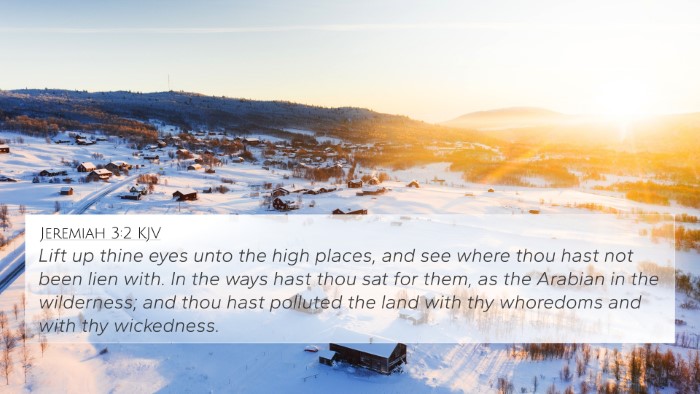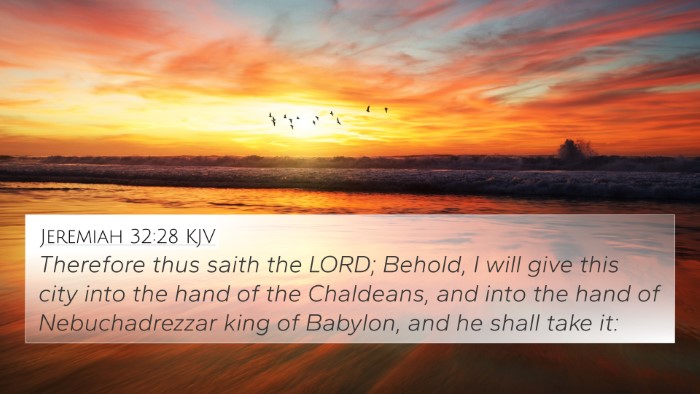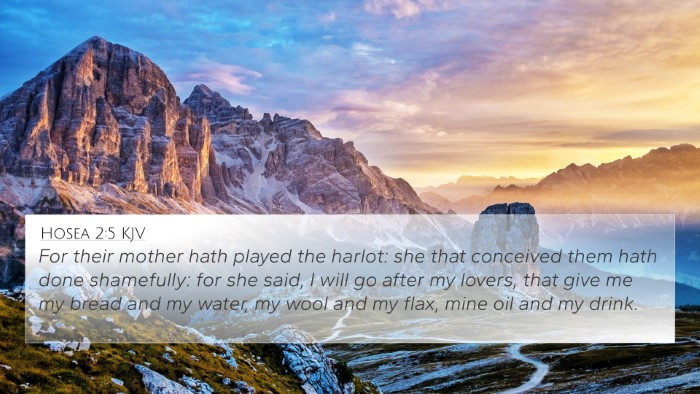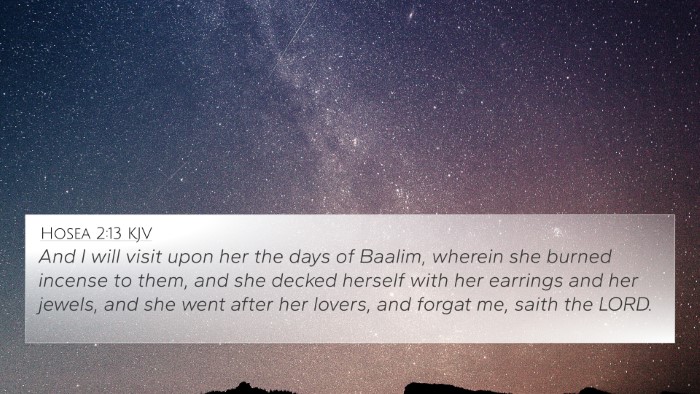Understanding Leviticus 20:5
Leviticus 20:5 states, "Then I will set my face against that man, and against his family, and will cut him off, and all that go a-whoring after him, to commit whoredom with Molech, from among their people." This verse emphasizes the seriousness of idolatry and the consequences for those who lead others into such practices. Below is a synthesis of insights from established public domain commentaries, exploring its meaning and providing cross-referencing connections with other Biblical texts.
Meaning of Leviticus 20:5
This verse serves as a solemn warning against the worship of Molech, a deity associated with child sacrifice. The phrase "I will set my face against" denotes God's fierce disfavor and active opposition toward those who engage in or promote such abominable acts.
Key Insights from Commentaries
- Matthew Henry: He emphasizes that the act of sacrificing children is a grievous sin that not only corrupts the perpetrator but also brings judgment upon their family. The collective accountability of a household is highlighted, reminding believers of the communal aspect of sin.
- Albert Barnes: Barnes elaborates on the dire consequences of leading others into idolatry. He notes that God's wrath is not only directed towards the individual committing the act but also extends to their family, illustrating the far-reaching impact of sin.
- Adam Clarke: Clarke points out that the term "whoredom" here signifies not just physical unfaithfulness but spiritual infidelity to God. He stresses that turning away from God to worship other gods is akin to committing adultery against Him.
Cross-References to Leviticus 20:5
This verse is interconnected with several other Biblical passages that elucidate similar themes. Here are key cross-references:
- Leviticus 18:21: "And thou shalt not let any of thy seed pass through the fire to Molech, neither shalt thou profane the name of thy God: I am the LORD." This verse explicitly forbids the act of child sacrifice and reinforces the theme of covenant faithfulness.
- Deuteronomy 12:31: "Thou shalt not do so unto the LORD thy God: for every abomination to the LORD, which he hateth, have they done unto their gods." This underscores God's abhorrence of idolatry and the practices associated with it.
- Jeremiah 32:35: "And they builded the high places of Baal, which are in the valley of the son of Hinnom, to cause their sons and their daughters to pass through the fire unto Molech." This illustrates the historical context of child sacrifice among the Israelites.
- Ezekiel 20:26: "And I polluted them in their own gifts, in that they caused to pass through the fire all that openeth the womb, that I might make them desolate." This reflects upon the judgment faced by those who sacrificed their children.
- 1 Corinthians 10:20-21: "But I say, that the things which the Gentiles sacrifice, they sacrifice to devils, and not to God: and I would not that ye should have fellowship with devils." Paul connects the practices of idolatry to spiritual deception.
- Galatians 5:19-21: "Now the works of the flesh are manifest, which are these; Adultery, fornication, uncleanness, lasciviousness..." This passage lists sexual immorality alongside idolatrous acts, affirming the moral transgression involved in worshiping false gods.
- Revelation 21:8: "But the fearful, and unbelieving, and the abominable, and murderers, and whoremongers, and sorcerers, and idolaters, and all liars, shall have their part in the lake which burneth with fire and brimstone..." This encompasses the ultimate consequences for those who engage in idolatry and immorality.
Thematic Connections Between Bible Verses
The underlying theme in Leviticus 20:5 relates to the importance of fidelity to God. The act of sinning against Him, particularly through idolatry, incurs severe consequences both personally and communally. Here are thematic connections explored through the cross-references:
- Idolatry and Its Consequences: All referenced verses discuss judgment and the serious implications of turning away from God towards false idols, emphasizing that such actions invite divine wrath.
- Community Accountability: Commentaries noted the collective impact of individual sins, resonating with verses that reflect on the consequences faced by families and communities when idolatry is practiced.
- Divine Justice: God's commitment to justice is reaffirmed across these passages, where the heinous nature of certain sins leads to pronounced disciplinary actions from God.
Utilizing Cross-References for Deeper Study
For those desiring to delve deeper, employing Bible cross-reference guides can enhance understanding. One can follow links between these scriptures to explore:
- How the Old Testament laws connect with New Testament teachings.
- The thematic exploration of sin and its repercussions.
- Comparative analysis between the Gospels and the Old Testament laws.
Utilizing a Bible concordance will further assist in identifying passages that resonate with the themes presented in Leviticus 20:5. Understanding the broader narrative context allows for a deeper grasp of scriptural meanings.
Conclusion
Leviticus 20:5 serves as a critical reminder of the need for covenant faithfulness and the dire consequences of idolatry. The connections drawn through various cross-references underscore the consistency of God's message throughout the Bible. Engaging with these texts not only fosters a stronger relational understanding of God but also equips individuals for a more profound spiritual journey through the intricacies of scripture.
